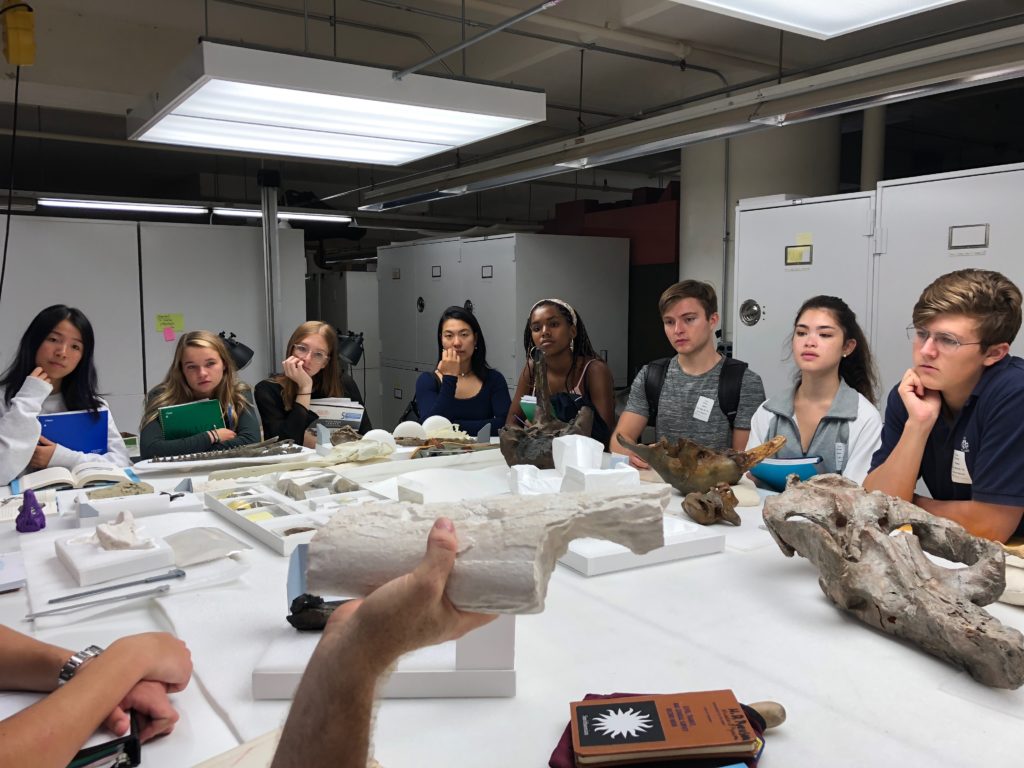STIA Minor

The Minor in Science, Technology and International Affairs (STIA) is administered by the STIA Program in the School of Foreign Service in collaboration with Georgetown College, the School of Health (SOH) and the McDonough School of Business (MSB).
Students who have fulfilled the STIA science fundamentals prerequisite, having completed all courses in their chosen sequence, may request approval to pursue the minor.
The science fundamentals prerequisite is the same as for the STIA-BSFS major, requiring that students take one of the five tracks designated below in full:
- Biology Track: BIOL 1203&1204 with 1213&1214 (labs)
- Chemistry Track:CHEM 1100&1200 with 1105&1205 (labs) or CHEM 1300&1400 with 1305&1405 (labs)
- Physics Track: PHYS 2051&2052 or 2101&2102 (includes labs)
- Comp Sci Track: COSC 1020&1030 and COSC 1110
- Environment & Sustainability Science Track: ERTH 1050&1060 and 1051&1061 (labs) plus one of the following: STIA 2270; STIA 4012; STIA 4230; STIA 4117; STIA 4962; CHEM 1020; ERTH 3380; STIA 4235
Please note that students cannot mix and match tracks for the purposes of the STIA minor – they must complete one full track to be eligible for the minor. Note that AP credit, Science for All (SFA) courses and Core Pathways science courses do not meet the STIA science prerequisite.
Students meeting this prerequisite must obtain approval to pursue the minor by submitting a written request to the appropriate Dean (see below). The request should articulate a rationale for the minor in relationship to the rest of the student’s program of study. In most cases, only students who have been approved to declare the STIA minor will be permitted to register for the required STIA gateway course (STIA 3005) unless space is available after all majors and minors have registered.
STIA minor approval for students in the College:
STIA minor approval for students in SOH:
Phone: 202 687-7935
STIA minor approval for students in MSB:
MINOR REQUIREMENTS
6 courses total including:
Three required courses:
- Science and Technology in the Global Arena (STIA-3005)
- Principles of Microeconomics (ECON-1001 or ECON 2101)
- International Relations (GOVT 1600)
Three elective courses from one of the four STIA subfields:
- Energy and Environment
- Business, Growth, and Development
- Biotechnology and Global Health
- Science, Technology, and Security
At least one elective course must be offered directly by the STIA program (with a STIA prefix).
All STIA courses listed in MyAccess show the STIA subfield attributes, with some courses counting for more than one concentration depending on focus. Courses offered each semester are also listed on the STIA-BSFS page. Concentrations are meant to provide depth and expertise in a specific STIA area, but there is some room to design the concentration courses around a student’s specific area of interest. Examples might include low carbon technology, global infectious diseases or cybersecurity.
Any courses taken abroad or outside of Georgetown must be reviewed by the STIA program for rigorous science and technology content prior to it being counted for the minor.
This minor is subject to the same controls as other minor programs in the College, including no courses that count toward any other degree option can count for the minor.